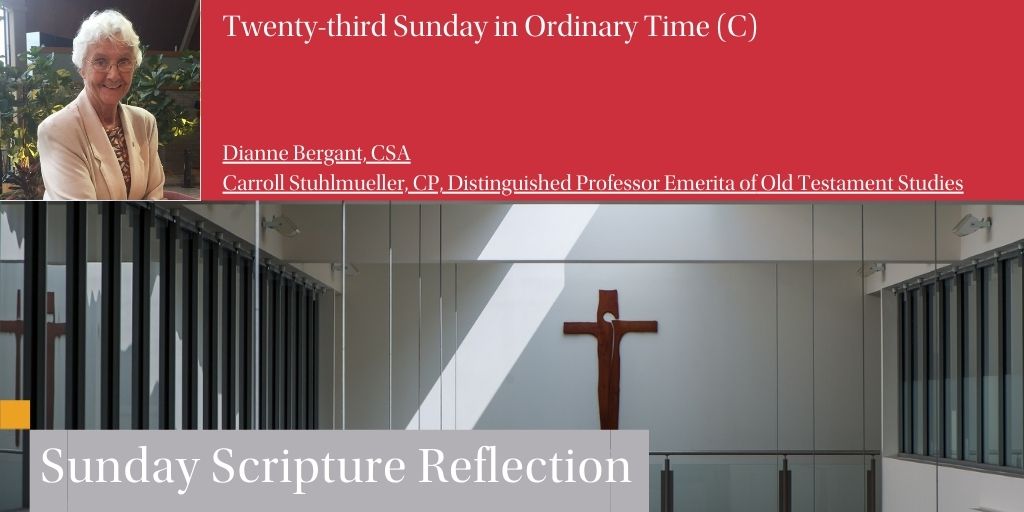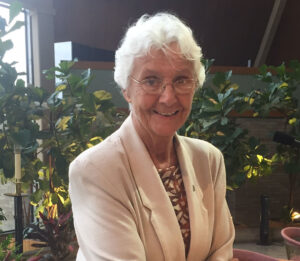

Readings:
Wisdom 9:13-18b
Psalm 90:3-4, 5-6, 12-13, 14 and 17
Philemon 9-10, 12-17
Luke 14:25-33
Decisions; Decisions; Decisions!
When I was much younger, I used to think that being obedient was hard. As I got older I came to realize that obeying others may be unpleasant, but I don’t think it is really hard. At least in such situations I know what is expected of me. Becoming an adult means that you have to make decisions for yourself. Now THAT is hard! This is particularly true in situations in which there are so many options from which one might choose. Ours is a world characterized by multiple choices. Many young people enroll in college without having decided upon a major, and it may be several semesters before they do choose one. The shelves of our markets are filled with many brands of the same product, all of which claim to be the best of its kind. And who can fathom the countless cable stations that are available to us at the flick of the remote? Decisions; decisions; decisions! If only someone would just tell us which to choose!
Every society has a wisdom tradition, a treasury of insights gleaned from experience that set a direction for living in such a way as to ensure success and well-being. Those who are wise have learned from this tradition, and they also contribute to it from their own reflection on the experience of life. All of the readings for this Sunday focus on some aspect of the wisdom of our religious ancestors, a wisdom that has been handed down to us through the teachings of our faith.
The reading from the Book of Wisdom clearly states the ambiguity that human beings face. Our deliberations are timid; our plans are unsure. This is because we often make choices that do not flow from noble aspirations. We are selfish or cruel; we are arrogant or dishonest; we are ignorant and inexperienced. Our human limitations can be a burden, and we need divine guidance. But even in seeking this guidance, we can so easily be deceived by our own ego. If “scarce do we guess the things on earth,” how can we hope to grasp the ways of God? “Who can conceive what the Lord intends?” Our desire to comprehend urges us on in the search for wisdom, even though we know we will probably never fully grasp what we seek. Acknowledging this we search nonetheless, and we pray that God will bestow the necessary wisdom upon us.
The second reading sketches a situation in which Philemon is invited to make a serious decision. A slave by the name of Onesimus has run away from his master and has found an advocate in Paul. Having established a relationship with this slave, Paul asks Philemon to set aside his rights and position as a slaveholder and to act in accord with the true equality established among believers through baptism. Paul’s arguments are quite forceful. Still, the decision is Philemon’s. Though he has a right to decide either way, Paul urges him to be influenced more by his religious tradition than the societal norms.
In the gospel account Jesus calls for a most radical decision. He offers his followers options: membership in society based on family ties or membership in a community of faith based on commitment to him. Jesus realizes that this is asking much of one for whom kinship ties are the basis of both personal and societal identity. Severing these ties must have felt like disowning one’s family and history. Realizing the pain involved in this decision, Jesus states: “Whoever does not carry one’s cross and come after me cannot be my disciple.” The seriousness of this decision prompts us to consider whether or not we have what it takes to make it. In this regard, Jesus offers two examples of assessing the necessary provisions. One does not embark on building projects without first taking stock of the available materials. Otherwise, one risks having to halt construction before it has been completed. In like manner, one must be prepared to follow Jesus lest the requirements of this decision become more than one can meet.
The way of life to which believers have been called may appear to be foolishness if judged by the standards of the world, but it really embodies wisdom and insight. From among all the opportunities placed before us, we must decide which ones will make us better people, which ones will enhance the lives of others, which ones will improve the world in which we live. Jesus directs us to think things through before we make our decisions. The author of Wisdom tells us to ask for enlightenment from God. Whichever decision we do make, it should flow from our religious values, what the author of Wisdom calls “things [that] are in heaven.” We are called to make decisions as disciples of Jesus, not as foolish people caught up in the many shallow values of our time.
Dianne Bergant, CSA
Carroll Stuhlmueller, CP, Distinguished Professor Emerita of Old Testament Studies